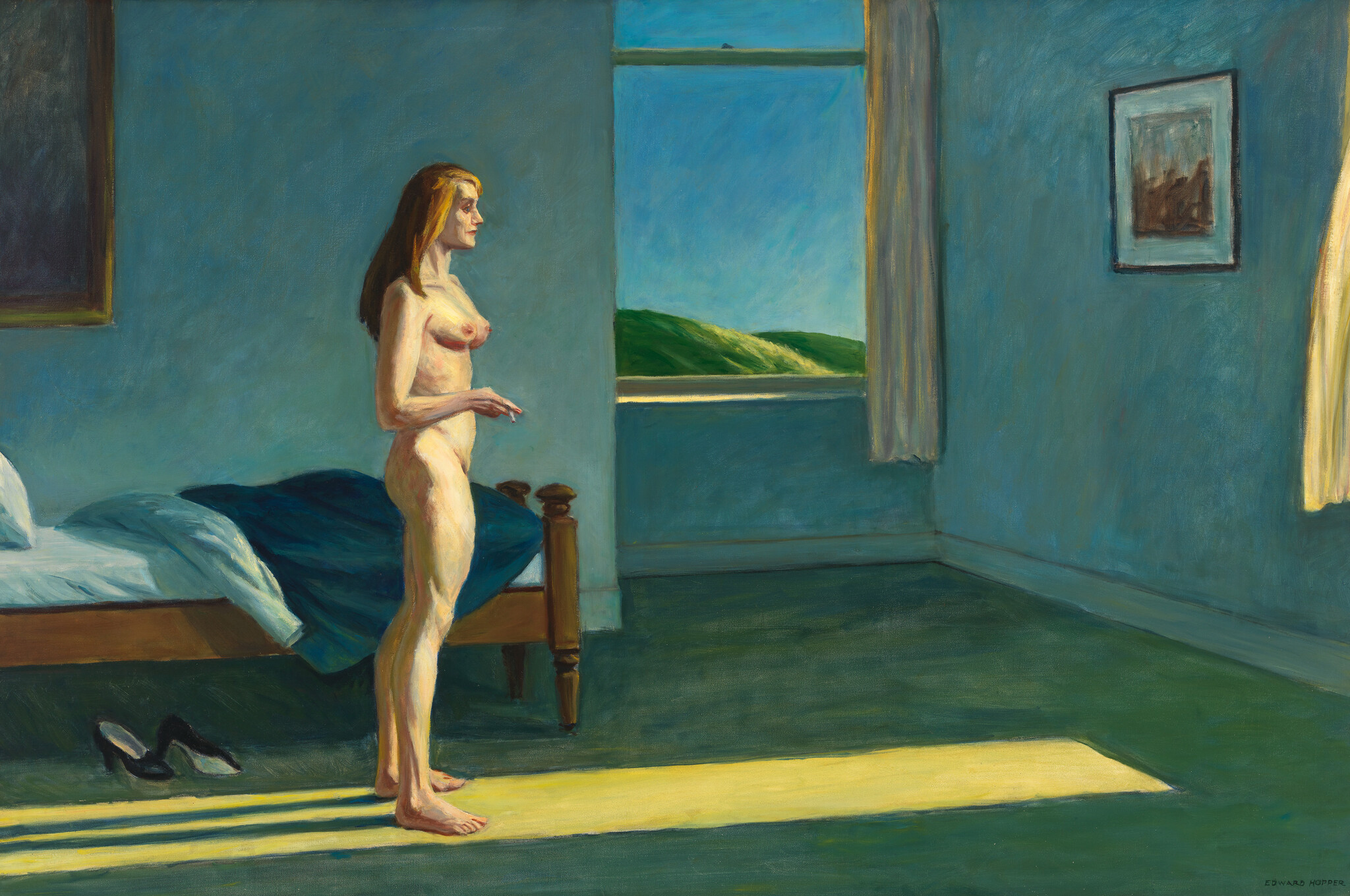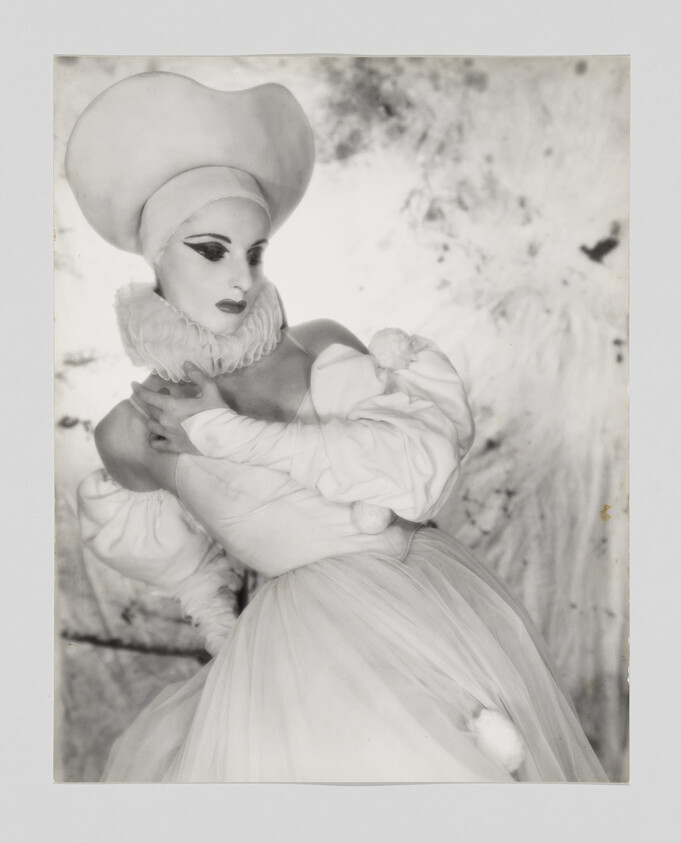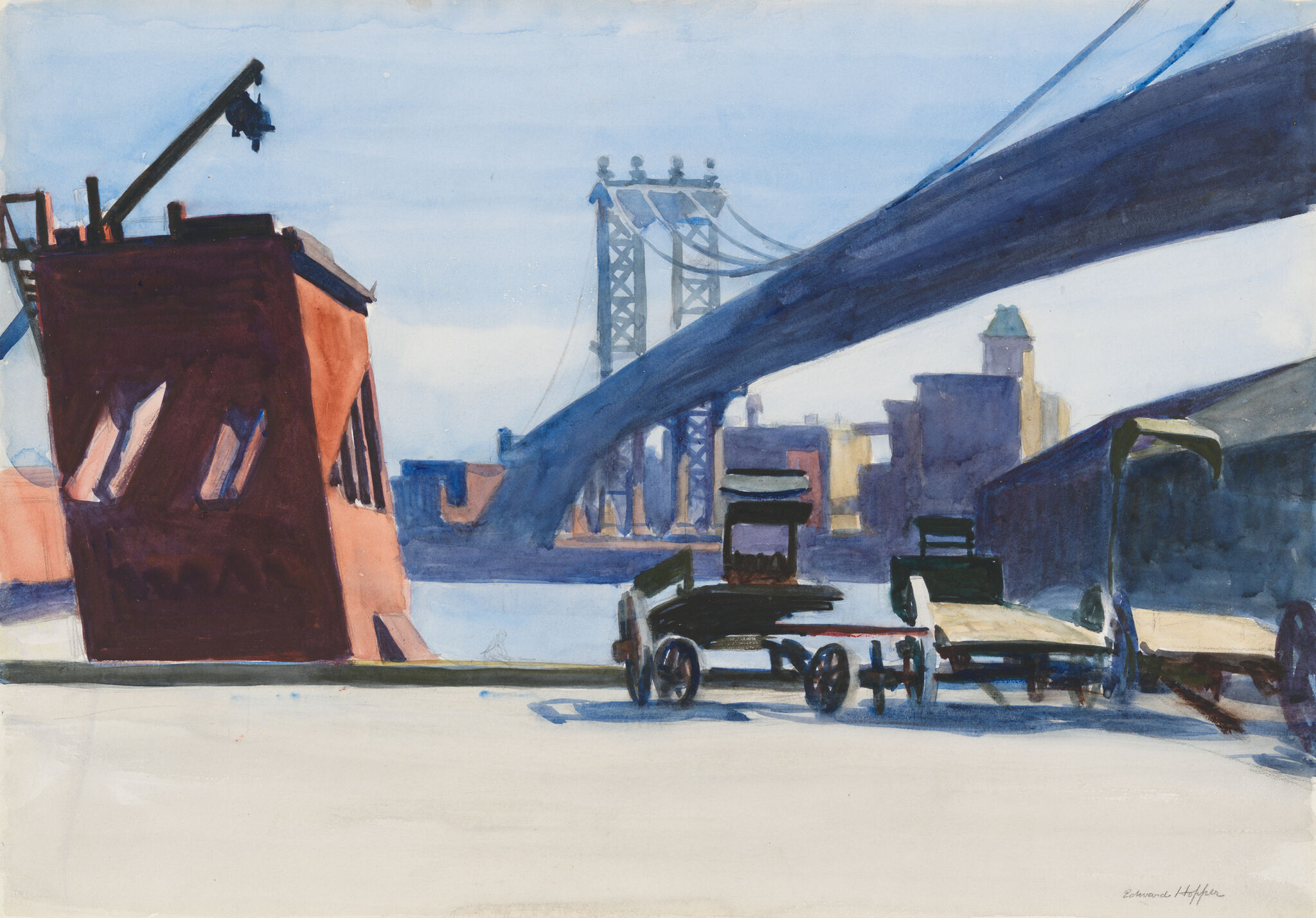The Hoppers’ Advocacy
Oct 2, 2022
0:00
The Hoppers’ Advocacy
0:00
Narrator: This case documents Jo and Edward Hopper’s neighborhood advocacy. In 1946, New York University became the owner of the building that housed their home and studio. A year later, the university began a process to try to evict the building’s tenants.
Jennie Goldstein: And the Hoppers go into full fight mode.
Narrator: Jennie Goldstein is an Assistant Curator at the Whitney.
Jennie Goldstein: They join up with other neighbors to try and raise awareness of what's happening to their and other properties on Washington Square North. So these are artists, individuals, writers, designers, all kinds of creatives who are concerned that they'll never be able to find affordable housing at this time of incredible population boom. So they use both their personal concern, their real legitimate fear that they're gonna lose their home/work space, but they also see it as part of a larger urban planning problem. In other words, they see NYU as having this kind of grand plan that a public park, Washington Square Park, will essentially become a kind of de facto private park.
And one of the things that the Hoppers decide to do is to reach out to Robert Moses, the Parks Commissioner. They felt that if they could alert Commissioner Moses to what they saw as this kind of nefarious scheme to take over a public park by a private university, that they may get more government support for their cause, but Robert Moses didn't see it that way at all. Moses thought this was not a public matter, that there was nothing a public official could do to weigh in on what was essentially a private matter. So their attempt, Jo and Edward Hopper's attempt to find high level support from a really famous political figure, did not work, but NYU's attempt to evict the tenants didn't work either.



